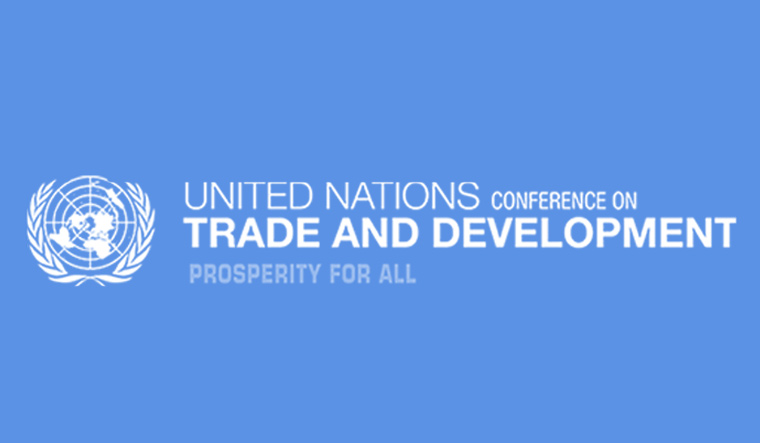United Nations Conference on Trade and Development (UNCTAD)

- 17 Apr 2024
Why is it in the News?
Global trade dynamics are expected to remain sluggish in 2024, the United Nations Conference on Trade and Development (UNCTAD) has warned.
Key Highlights of the Report:
- UNCTAD’s latest projections indicate global growth of 2.6 percent in 2024, slightly slower than in 2023.
- This marks the third consecutive year in which the global economy will grow at a slower pace than before the pandemic when the average rate for 2015–2019 was 3.2 percent.
India’s growth is expected to be marginally lower than in 2023:
- Regarding India, the report stated that the economy grew at 6.7 percent in 2023 and is expected to be marginally lower at 6.5 percent in 2024.
- It noted that the expansion in 2023 was influenced by strong public investment and the services sector, which received a boost from robust local demand for consumer services along with assured external demand for business services exports.
- The Reserve Bank of India (RBI) is expected to keep interest rates constant in the near term, while strong public investment expenditures will offset restrained public consumption spending.
About the United Nations Conference on Trade and Development (UNCTAD):
- The United Nations Conference on Trade and Development (UNCTAD) is an intergovernmental organization established in 1964 to promote the interests of developing countries in global trade.
- With its headquarters in Geneva, Switzerland, UNCTAD has 195 member states and collaborates with numerous nongovernmental organizations worldwide.
- The organization focuses on formulating policies related to various aspects of development, including trade, aid, transport, finance, and technology.
- UNCTAD plays a crucial role in addressing the concerns of developing countries regarding international institutions, such as the World Trade Organization (WTO), the International Monetary Fund (IMF), and the World Bank.
- By providing a platform for these countries to discuss and tackle their unique challenges, UNCTAD contributes to global economic development and reduces inequalities.
- Some notable achievements of UNCTAD include the establishment of the Global System of Trade Preferences (now replaced by the World Trade Organization), which reduces tariffs and removes non-tariff trade barriers, the Common Fund for Commodities, providing financial assistance to countries dependent on commodity exports, and various agreements for debt relief.
- In recent years, UNCTAD has focused on addressing globalization challenges and helping the least developed countries integrate into the global economy.
